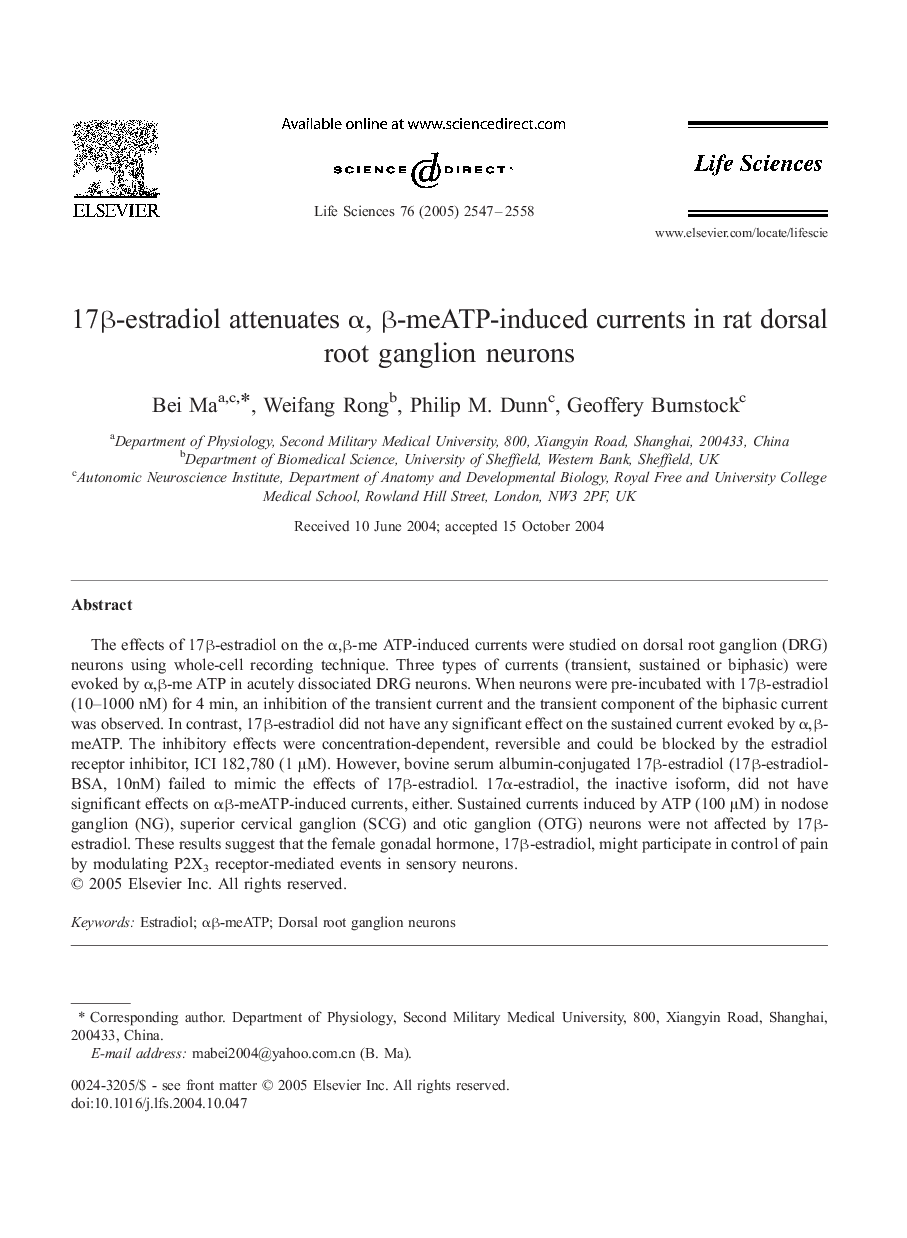| Article ID | Journal | Published Year | Pages | File Type |
|---|---|---|---|---|
| 2553738 | Life Sciences | 2005 | 12 Pages |
The effects of 17β-estradiol on the α,β-me ATP-induced currents were studied on dorsal root ganglion (DRG) neurons using whole-cell recording technique. Three types of currents (transient, sustained or biphasic) were evoked by α,β-me ATP in acutely dissociated DRG neurons. When neurons were pre-incubated with 17β-estradiol (10–1000 nM) for 4 min, an inhibition of the transient current and the transient component of the biphasic current was observed. In contrast, 17β-estradiol did not have any significant effect on the sustained current evoked by α,β-meATP. The inhibitory effects were concentration-dependent, reversible and could be blocked by the estradiol receptor inhibitor, ICI 182,780 (1 μM). However, bovine serum albumin-conjugated 17β-estradiol (17β-estradiol-BSA, 10nM) failed to mimic the effects of 17β-estradiol. 17α-estradiol, the inactive isoform, did not have significant effects on αβ-meATP-induced currents, either. Sustained currents induced by ATP (100 μM) in nodose ganglion (NG), superior cervical ganglion (SCG) and otic ganglion (OTG) neurons were not affected by 17β-estradiol. These results suggest that the female gonadal hormone, 17β-estradiol, might participate in control of pain by modulating P2X3 receptor-mediated events in sensory neurons.
